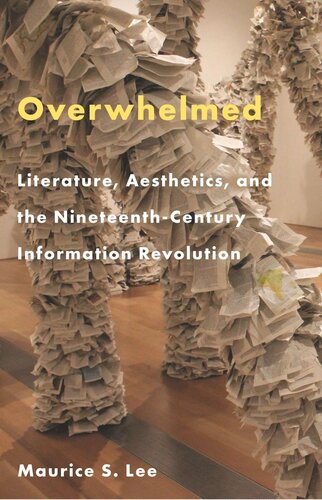

Most ebook files are in PDF format, so you can easily read them using various software such as Foxit Reader or directly on the Google Chrome browser.
Some ebook files are released by publishers in other formats such as .awz, .mobi, .epub, .fb2, etc. You may need to install specific software to read these formats on mobile/PC, such as Calibre.
Please read the tutorial at this link: https://ebookbell.com/faq
We offer FREE conversion to the popular formats you request; however, this may take some time. Therefore, right after payment, please email us, and we will try to provide the service as quickly as possible.
For some exceptional file formats or broken links (if any), please refrain from opening any disputes. Instead, email us first, and we will try to assist within a maximum of 6 hours.
EbookBell Team

4.0
96 reviewsThis book argues that debates over the fate of literature in the present digital age are powerfully conditioned by the information revolution of the nineteenth century.
An engaging look at how debates over the fate of literature in our digital age are powerfully conditioned by the nineteenth century's information revolution
What happens to literature during an information revolution? How do readers and writers adapt to proliferating data and texts? These questions appear uniquely urgent today in a world of information overload, big data, and the digital humanities. But as Maurice Lee shows in Overwhelmed, these concerns are not new—they also mattered in the nineteenth century, as the rapid expansion of print created new relationships between literature and information.
Exploring four key areas—reading, searching, counting, and testing—in which nineteenth-century British and American literary practices engaged developing information technologies, Overwhelmed delves into a diverse range of writings, from canonical works by Coleridge, Emerson, Charlotte Brontë, Hawthorne, and Dickens to lesser-known texts such as popular adventure novels, standardized literature tests, antiquarian journals, and early statistical literary criticism. In doing so, Lee presents a new argument: rather than being at odds, as generations of critics have viewed them, literature and information in the nineteenth century were entangled in surprisingly collaborative ways.
An unexpected, historically grounded look at how a previous information age offers new ways to think about the anxieties and opportunities of our own, Overwhelmed illuminates today’s debates about the digital humanities, the crisis in the humanities, and the future of literature.